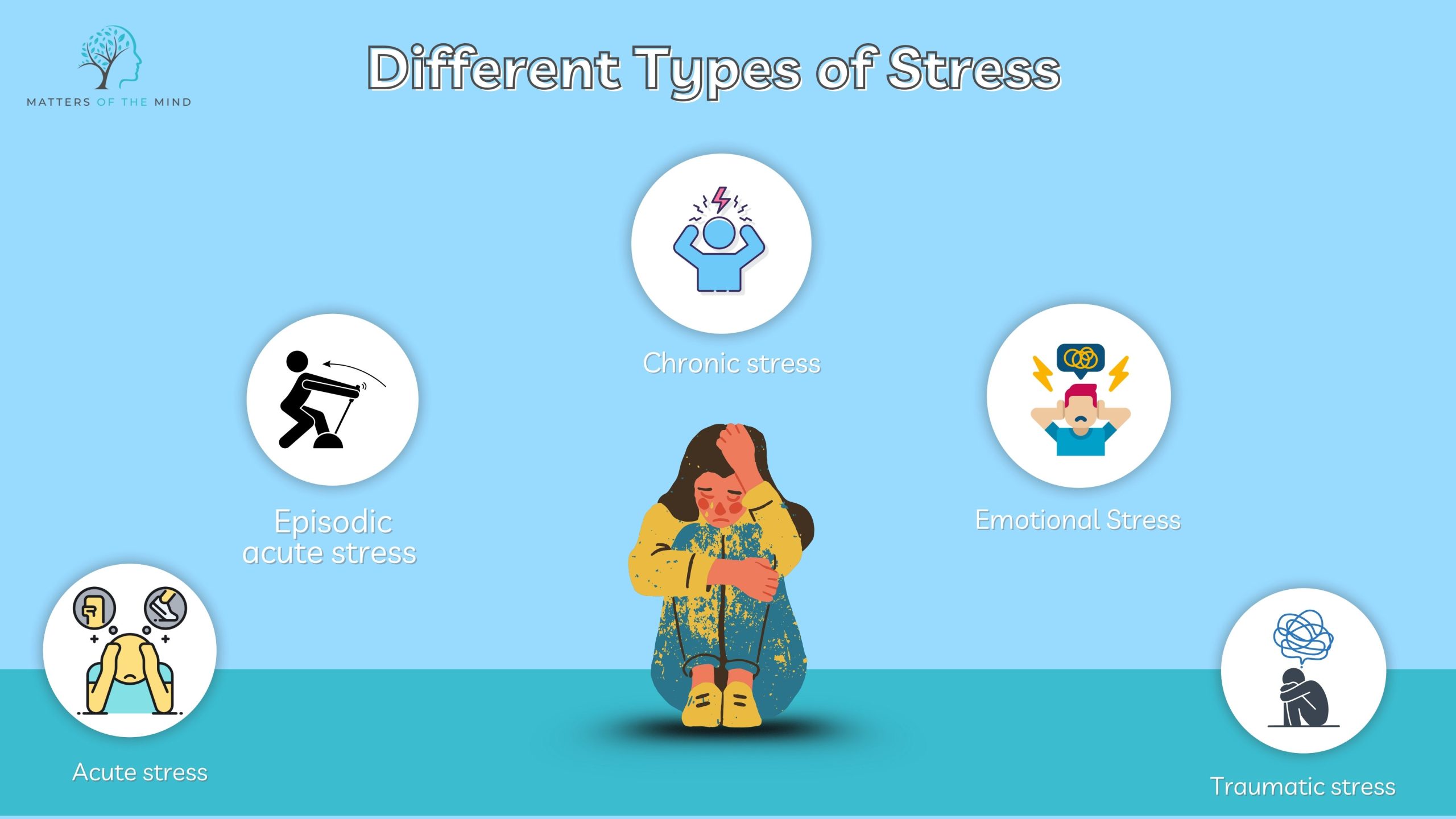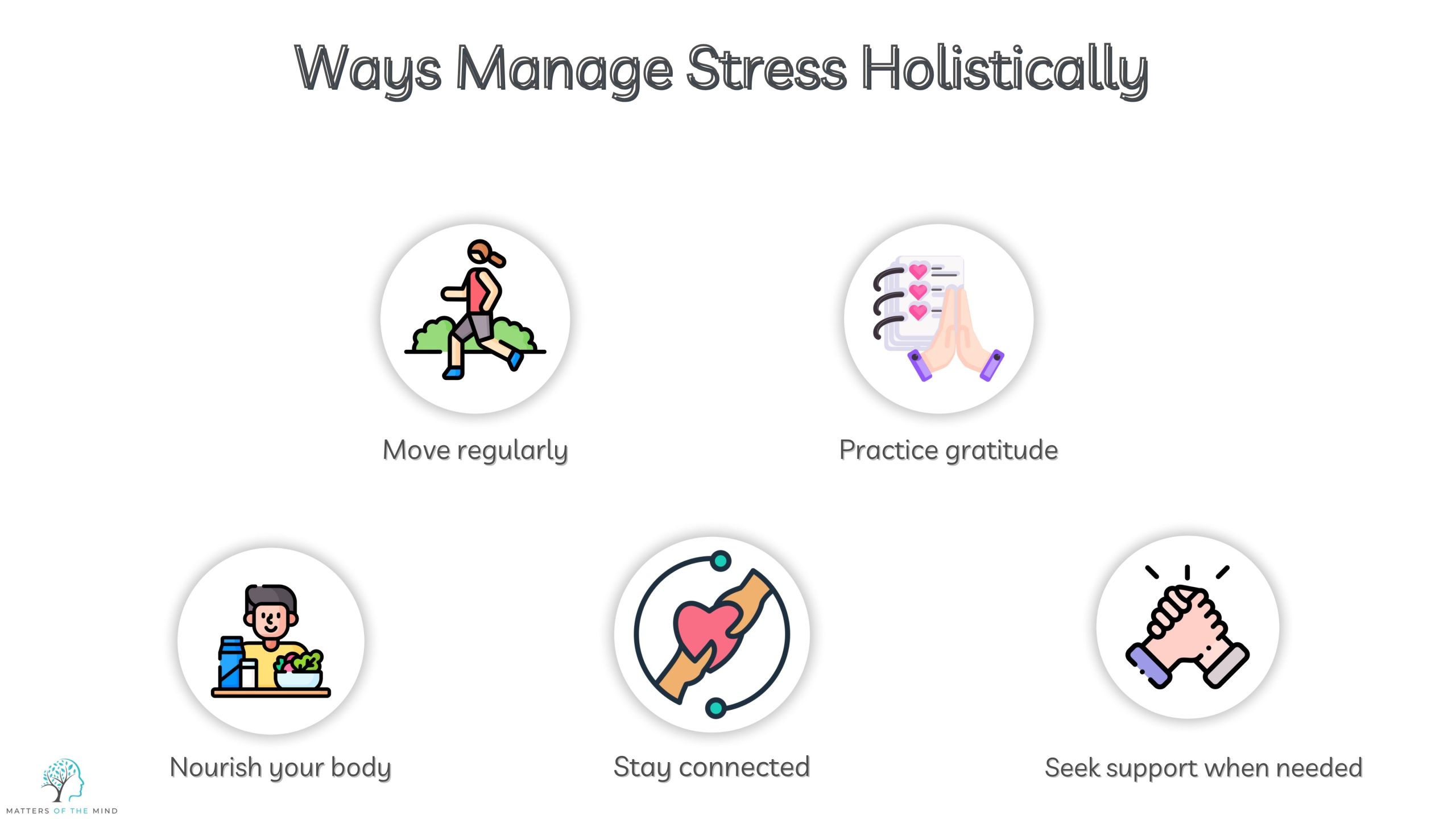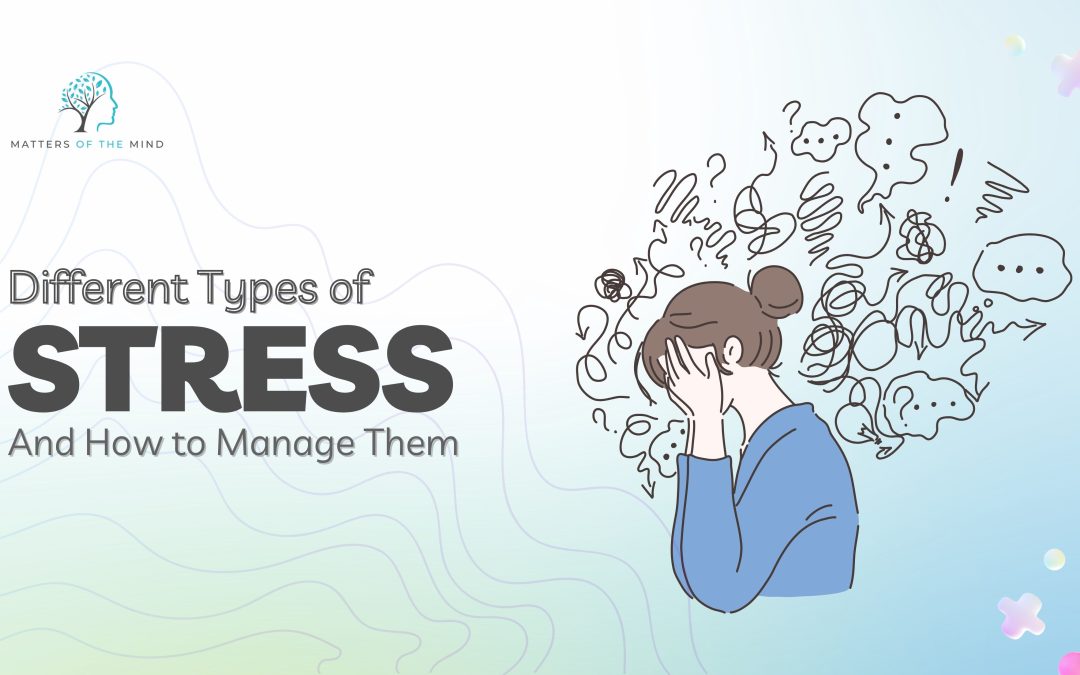Various Types Of Stress
Below are the listed types of stress that affect the mental well-being of an individual.

1. Acute stress
Acute stress is the most common and short-term form of stress. It appears suddenly, like when you’re running late for a meeting, facing an unexpected problem, or avoiding an accident. It triggers your body’s sudden response, releasing hormones such as adrenaline and cortisol to help you react quickly.
Symptoms
- Fast heartbeat
- Tense muscles
- Irritability or restlessness
- Difficulty concentrating
- Pause and breathe: Slow, deep breathing signals your body to relax.
- Ground yourself: Notice five things that you can see, four you can touch, three you can hear. Grounding techniques help bring you back to the present.
- Reflect later: Once the moment passes, take a few minutes to process what happened instead of erasing it. This builds resilience for future stressful moments.
2. Episodic acute stress
- Constant rushing or multitasking
- Frequent headaches, stomach aches, or fatigue
- Difficulty relaxing or sleeping
- Irritability or mood swings
- Learn to say NO: Protecting your time and energy is a form of self-respect.
- Set realistic goals: Perfectionism often fuels this type of stress. Focus on progress, not perfection.
- Adopt relaxation rituals: Whether it’s a short walk, meditation, or reading before bed, or consistent moments of calm can interrupt the stress cycle.
3. Chronic stress
It is a kind of stress that doesn’t seem to end. It may stem from ongoing life situations, financial difficulties, relationship conflicts, work pressure, or health concerns. When stress persists for a week, a month, or even years, it begins to wear down both body and mental health.
- Persistent anxiety or sadness
- Insomnia or sleeping
- Frequent illness or weak immunity
- Feeling hopeless, trapped, or emotionally drained
- Create healthy boundaries: Separate work from personal life and avoid taking emotional baggage to the end of the day.
- Build supportive connections: Sharing your feelings with trusted friends, family, or a mental health professional can reduce isolation and offer perspective.
- Reassess your coping mechanisms: Notice if you’ve turned to unhealthy habits like drinking, scrolling endlessly, and replace them gradually with self-nourishing ones- journaling, exercises, and creative hobbies.
4. Emotional Stress
- Emotional outburst or Frequent crying
- Overthinking
- Withdrawal from others
- Physical tension or fatigue
- Acknowledge your emotions: Bottling up your feelings doesn’t make them go away. Allow yourself to feel without judgment.
- Write it out: Journaling can help process emotions and bring clarity.
- Practice self-compassion: Speak to yourself the way you speak to others.
- Engage in mindful activities: Practices like yoga, meditation, or mindful walking can help integrate emotional intensity and restore calm.
5. Traumatic stress
- Flashbacks or nightmares
- Heightened alertness or avoidance
- Difficulty trusting or connecting with others
- Emotional numbness or detachment
How To Manage
- Create a sense of safety: Establish routines and physical environments that feel secure.
- Practice grounding: Simple sensory exercises (like noticing textures or sounds) help anchor you in the present moment.
- Engage in gentle physical activity: Movement like stretching or mindful walking can release stored tension.
- Reach out for professional help: Traumatic stress often needs trauma-informed care to process safely and effectively.
The Path To Manage Stress Holistically

- Nourish your body: Eat balanced meals, stay hydrated, and rest adequately.
- Move regularly: Exercise releases endorphins and supports emotional regulation.
- Stay connected: Human connection is one of the strongest buffers against stress.
- Practice gratitude: Shifting focus toward what’s working well can change how you perceive challenges.
- Seek support when needed: Reaching out for help is not a sign of weakness; it’s an act of strength and self-awareness.
A Gentle Reminder
If you need professional help for your mental health issues, you can consult Dr Kavita Deepak-Knights, who offers compassionate and evidence-based psychological support to help you navigate life’s challenges with balance and resilience.


